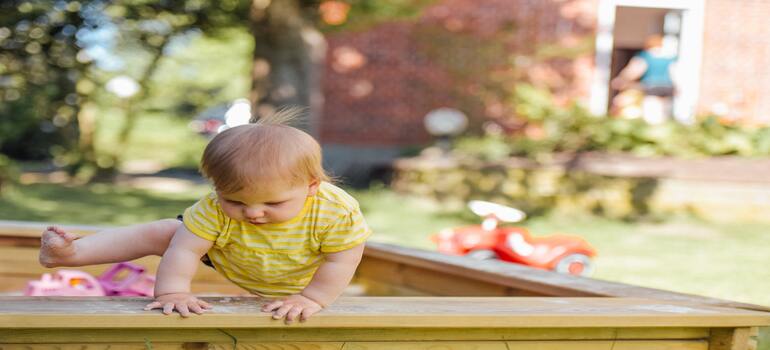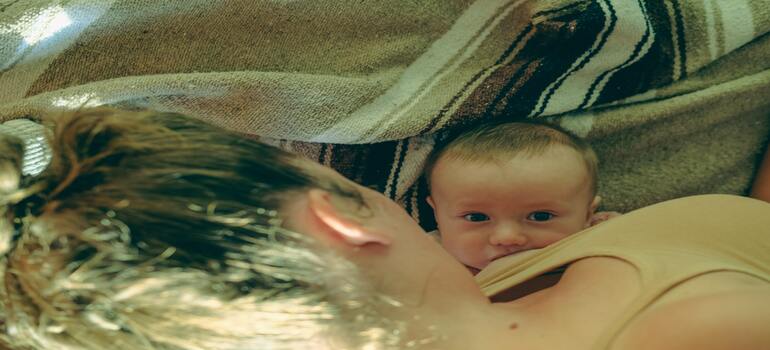Ensuring Good Dental Health For Kids
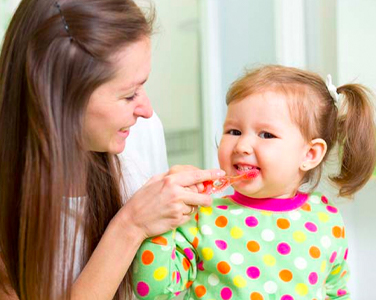
- October 21, 2020
- MKB Team
Tips to keep your kids teeth healthy
On the occasion of World Dental Health Day, we brought some insights for new and experienced moms about dental care from our experts. Do watch the video to learn more about it!
We often don’t realize but a child needs proper dental care from the minute their baby teeth start to erupt. We can avoid these dental mistakes by some mindful simple steps. It may be a not a concern that has been raised very dominantly amongst parents but an infant as young as a 7 to 8-month, can develop a dental health issue if not tended to at a right time. It is advisable that you start with kids’ dental healthcare early on.
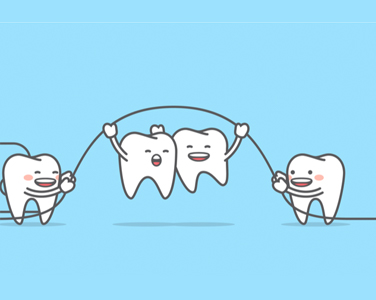
Today we will not only be busting myths but share some advice straight from doctors to you moms so that you can save those pearls!
1. Home care is essential
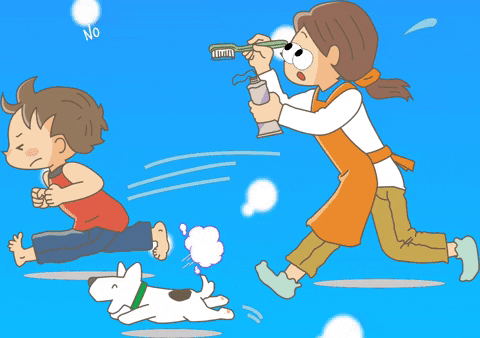
While you might wonder about the significance of oral hygiene for a toddler, doctors say that most parents are unaware of its importance. Even if there is one tooth that has popped up, you need to brush it. Eventually when the little one grows up, start with proper brushing, flossing, mouth rinsing after every meal and regular visits to the dentist.
2. When should you visit the dentist?

As soon as the first tooth appears, do visit the doctor to know more about the general wellness of your child’s teeth. The doctor will also guide you if there are any precautionary actions to be taken so that you are prepared beforehand.
3. Teeth Cleaning
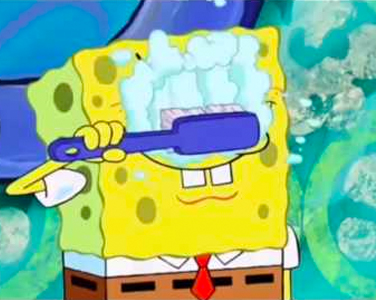
Many believe that using normal brushes can be hard for the delicate gums of kids and might irritate them beyond measure. The concern is true, therefore you can switch to Silicon Tipped Brushes which won’t even irritate the little and make the cleaning seamless. As far as toothpaste is concerned, you can opt for less fluoride-containing toothpaste (kiddy toothpaste) to save your child from any reaction.
4. Prioritise daily dental routine

Like we explained, don’t go with the notion of a child not needing dental care till they grow up. But before the visit to the doctor, the care begins at home when you see the first tooth coming up. However mundane it sounds, you must clean all the teeth, even if the count is one, because every tooth matters. This is because below the milk teeth are the permanent ones and improper care of milk teeth can cause complications in the one below!
5. Take care of their dental care equipment
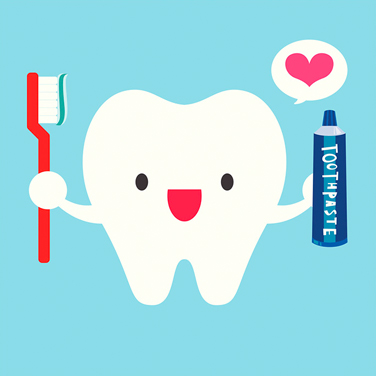
This one is especially for the silicon toothbrushes which your kids will use. Kids tend to have low immunity against bacteria and viruses, therefore you must boil or sanitize their brushes so that they don’t contain any infectious element that can go into your child’s system while brushing.
The amount of hard work you need to put as a parent in your child’s well being is something we understand. Therefore, it is important for you to understand that their fundamentals of good health begin from gums and teeth, they being an integral part of the whole system as well as strong well-being.
If you are somebody who loves more of a natural approach then you can also try on these methods like feeding your child with probiotics, berries, arginine-rich food, and whole foods.
Here are some Dental mistakes parents make with their kids and how to avoid them
Did you know? Teeth are the only part of our body that can’t heal itself. That’s why we have to protect them with all we can.
A child’s dental health is set in motion before their first baby tooth sprouts. That means you should start promoting healthy dental habits for your kid from day one. Childhood tooth decay can be prevented in the first place when parents help their kids avoid bad dental habits (and foster good ones). It helps to remember that oral and dental health habits, both good and bad, are formed early.
To get your kids’ teeth off to a healthy start, avoid these dental-health mistakes.
- Neglecting the dentist:
Ideally, kids should visit the dentist within six months after their first tooth appears and no later than their first birthday. After the first visit, your baby should continue to have regular check-ups at least every six months.
- Middle-of-the-night feeding:
Once your baby’s teeth begin to show, you may want to avoid those middle-of-the-night feedings. Lactose, which is the main sugar in breast milk, provides about 40 per cent of a breastfed baby's calories. Baby teeth can become decayed if overexposed to breast milk at night because of that sugar. It is also recommended that you wash or wipe away the milk left in the baby's mouth after every feeding to avoid pitting and discolouration on the teeth which can be a result of night time feeding.
- Sipping on Sippy cups all day:
Constantly sipping milk, juice, or any sweetened liquid does not give a child's natural saliva a chance to rinse away sugars that cause tooth decay.
- Thumb sucking with big-girl teeth:
Once the permanent teeth start coming in — usually somewhere between the ages of 4 and 6 — thumb sucking can cause a misalignment of the teeth, which can lead to several issues, such as difficulty chewing.
- Giving pacifiers to pre-schoolers:
Pacifier use (just like thumb sucking) can also affect a child’s oral health by interfering with normal tooth and jaw development. Pacifying into the toddler years can be a tough habit to break — the best time to stop allowing your baby to use a pacifier is at about age 1 to safeguard baby teeth.
- Swallowing toothpaste:
Fluoride — the natural cavity fighter — is good for your kids' teeth. But too much fluoride can cause fluorosis, a condition that creates white or brown spots on kids’ teeth. So while gooey toothpaste can be fun to play with, it’s important to teach your children not to swallow it — especially if it contains fluoride. So, until your child is old enough to be able to spit after brushing, you can use non-fluoride toothpaste specially made for kids’ teeth, just make sure they’re getting the right amount of fluoride with a fluoride supplement.
- Gnawing on pencils:
In addition to introducing bacteria into the mouth, this habit can cause wearing away of tooth surfaces and can lead to dangerous oral trauma if a child falls while having a pen or pencil in the mouth.
- Nibbling on nails:
Nail biting increases a child's risk for bruxism, which is unintentional teeth grinding. In turn, bruxism can lead to facial pain and sensitive teeth. The best way to break this habit is to explain the dangers to your child and find alternatives and rewards.
- Chugging sugary sodas:
Carbonated sugary colas and soft drinks are bad for everybody's teeth, but they are particularly hard on newly erupted baby teeth. Unfortunately, statistics show that about 20 per cent of 1- and 2-year-olds are exposed to these drinks every day. Don’t let your baby develop a soft drink habit.
HOW CAN YOU KEEP YOUR TEETH HEALTHY?
Kids can take charge of their teeth by learning these steps:
- Brush at least twice a day:
After breakfast and before bedtime. If possible, make sure your child brushes after lunch or after sweet snacks. Brushing properly breaks down plaque. Have your dentist show your child the best way to brush to get their teeth clean without damaging the gums.
- Take enough time while brushing -
Make sure they spend at least 2 or 3 minutes each time they brush. If you have trouble keeping track of the time, use a timer or play a recording of a song they like to help pass the time.
- Be sure the toothbrush has soft bristles
(the package will tell you if they're soft). Replace your child’s toothbrush every 3 months. Some toothbrushes come with bristles that change colour when it's time to change them.
It's also important to visit the dentist twice a year. Besides checking for signs of cavities or gum disease, the dentist will help keep your child teeth extra clean and can help them learn the best way to brush and floss.
It's not just brushing and flossing that keeps the teeth healthy. You also need to be careful about what they eat and drink. Remember, the plaque on your teeth is just waiting for that sugar to arrive. Include lots of fruits and vegetables in their meals and make sure they drink water instead of soda.
Do you take any special steps to keep a check on your child’s dental health? Tell us your secret hacks in the comments below.
Published by
MKB Team
200 Articles
MomsKnowBest is a fast-growing vibrant community of moms, for moms, by moms. Motherhood is complex fun, fulfilling, grueling, exhausting and very complex. There’s no handbook to it. And let’s face it – moms are put...
Read MoreShare with your friends!
Leave a Comment
Trending Post
Myth Buster: Having iron tablets makes your child...
Busting Top 10 Pregnancy Myths about having Iron Tablets
One of the Top 10 pregnancy myths is that...
Health Benefits of Pomelo For Moms To-Be & Kids
During pregnancy, women need proper nutrition to support their health as well as the growth of the...

